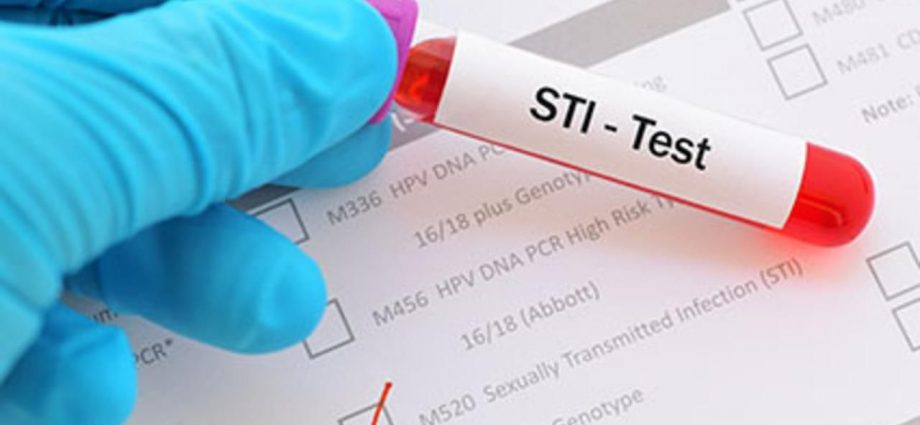WEDNESDAY, April 13, 2022 (HealthDay News) — Rates of gonorrhea are on the rise, and this sexually transmitted disease is becoming increasingly resistant to antibiotics, raising fears of a potential superbug.
Luckily, while there isn’t a vaccine against gonorrhea yet, an available meningitis vaccine may offer some protection against this STD, two new studies suggest.
There are two vaccines available in the United States that can protect against meningitis, a potentially life-threatening inflammation of the membranes that cover the brain and spine. The MenACWY vaccines (Menactra, Menveo and MenQuadfi) protect against the A, C, W and Y strains, and the MenB-4C vaccine (Bexsero) protects against the B strain. The new studies looked at the MenB-4C vaccine, which is not routinely recommended for all teens and young adults.
“The MenB-4C vaccine may offer cross-protection against gonorrhea, but clinical trials to examine vaccine efficacy are still needed,” said the co-author of one of the studies, Dr. Winston Abara, an epidemiologist with the U.S. Centers for Disease Control and Prevention’s Division of STD Prevention.
Abara’s research wasn’t designed to say how the MenB-4C vaccine may protect against gonorrhea, but it might be due to the genetic similarities between N. meningitidis and N. gonorrhoeae, the organism that causes gonorrhea, he said. These two bacteria cause very different diseases but are closely related.
“MenB-4C clinical trials are ongoing and are needed to fully and accurately assess the mechanism of protection against gonorrhea,” Abara noted.
Gonorrhea is spread through sex and is common among people ages 15-24 years, according to the CDC. Symptoms may include painful or burning urination and/or discharge from the penis or vagina, but not everyone will develop symptoms. Untreated, gonorrhea can cause serious problems in men and women.
In Abara’s study, researchers reviewed the health records of almost 110,000 16- to 23-year-olds from New York City and Philadelphia to see who had been diagnosed with gonorrhea or chlamydia, another STD, from 2016 to 2018. (Chlamydia and gonorrhea share similar risk factors, but the meningitis vaccine wouldn’t offer protection against chlamydia.) Then they checked immunization records to see who had received the MenB-4C vaccine.
There were more than 18,000 gonorrhea cases detected, and nearly 7,700 people were vaccinated with MenB-4C, with about half receiving one dose and the others receiving the full two doses. Complete MenB-4C vaccination provided 40% protection against gonorrhea, and one dose provided 26% protection, the study showed.
In a related study in South Australia, two doses of the vaccine were 33% effective against gonorrhea in adolescents and young adults.
“There is potential to protect against two serious infections with one vaccine,” said study co-author Dr. Helen Marshall, a professor of vaccinology at the University of Adelaide in Australia.
“We don’t know how long this protection may last, and we will be monitoring it to see whether there is an ongoing benefit or if there is waning protection against gonorrhea,” she said.
Both studies were published online on April 12 in The Lancet Infectious Diseases.
Dr. Robert Grossberg is the medical director of the Center for Positive Living/ID Clinic at Montefiore Medical Center and an associate professor of medicine at the Albert Einstein College of Medicine in New York City. He said this new research “adds to the existing information that the meningitis vaccine may protect people from gonorrhea.”
The MenB vaccine is now recommended for adults or teens at increased risk of meningitis, such as those who have certain immune disorders, take certain medications, or get exposed to a meningitis outbreak, said Grossberg, who wasn’t involved with the studies.
“If we believe that this vaccine or some related formulation is protective against gonorrhea, I suspect that I will be much more likely to recommend it,” Grossberg said. “Given how common gonorrhea is in the adolescent and young adult population, and that we are facing increasing rates of antibiotic resistance in the bacteria that causes it, a vaccine is a crucial strategy in preventing illness.”
More information
The U.S. Centers for Disease Control and Prevention offers more on the meningitis vaccines.
SOURCES: Winston Abara, MD, PhD, epidemiologist, Division of STD Prevention, U.S. Centers for Disease Control and Prevention, Atlanta; Helen Marshall, MD, professor, vaccinology, University of Adelaide, Australia; Robert Grossberg, MD, medical director, Center for Positive Living/ID Clinic, Montefiore Medical Center, and associate professor, medicine, Albert Einstein College of Medicine, New York City; The Lancet Infectious Diseases, April 12, 2022
Copyright © 2026 HealthDay. All rights reserved.

